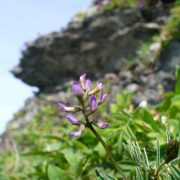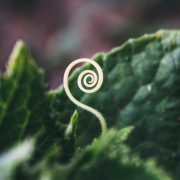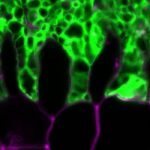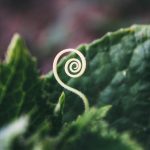A Moment of Bravery
Guest post by Rebecca Hayes for the LGBTQ+ Plant Scientist Network Pride Month Blog Series

A rainbow of serpentine seep species
I never intended to come out at work.
I waitressed every weekend at a local diner in my conservative hometown while I was in high school and while working on my undergraduate degree. Seldom were the shifts in which I escaped without having an interaction with a customer that was neither racist, nor sexist, nor homophobic. The diner was friendly and comfortable, which bred dedicated regulars who would eat several meals a day there. Some were there so often that they felt entitled to know the personal life details of the waitstaff. Sometimes older men would intrusively inquire why I didn’t have a boyfriend. My answer? I‘m happy with a degree.
When a customer left her name and number for me scribbled quickly on a napkin as her friends hurried to their car one morning, one of the other waitresses was the first to find it. She paraded the napkin through the kitchen like a war flag announcing her hilarious discovery to the rest of the staff. As the people I had worked with for several years laughed in my face that someone would think I was gay, I decided that I could never be myself there. I showed up, worked hard, got paid, and got out. None of my coworkers knew anything about me besides the fact that I was getting a biology degree. At the time, I hadn’t fully began to accept my sexuality, and having to constantly act like a different person at work further complicated my feelings. It was easier to leave them unexplored and unremarked.
My affinity for plants led me to join a plant science lab in my second year of undergrad. Timid with a dubious understanding of how to conduct myself in a professional setting, I was constantly worried that I would somehow break an unspoken rule then be cast out, never to return to the biological sciences department again. I felt incredibly intimidated by the success of my colleagues, and so spent my first few months avoiding having to talk at length to anyone unless it was directly related to the task at hand. During that time, I learned a lot about my colleagues. At this place, believe it or not, people actually shared things about their lives with the people they work with.
“My wife.”
The two words spoken so casually reverberated in my head like seismic aftershocks as I took a moment to inhale. Never before had I met someone who was out at work. I had worked several restaurant and retail jobs by that point, and not once had someone expressed anything other than heterosexuality. The fact that it was fine to be out at work in this field made me excited to stick around.
The first time I came out to anyone was via email. I learned of an opportunity for full funding to attend a conference for students from underrepresented groups and as a first-generation student from a low-income family, I felt thrilled at the chance to travel and meet other scientists. I asked my undergrad research mentor for a letter of recommendation. She asked me several questions about the requirements for the application, one of which regarded my eligibility for the funding. In my email, I began to write:
“I am a first-generation college student from a low-income family.”
I looked back to the application form that included a list of eligible identities. The acronym “LGBTQ+” seemed bolded and italicized. I paused. I hadn’t yet told anyone that I had been pondering my sexuality for years. I didn’t think it was necessary; I was far too busy to date anyone and my life felt fine the way it was. I finished the rest of the email and prepared to press send.
A fleeting hesitation bubbled into a brief moment of bravery in which I held my breath, added “I am an LGBTQ+ woman”, and sent it.

Photographed in my natural habitat
I nervously walked into the lab later that week to find that absolutely nothing had changed. My place in the lab was exactly as it was before I had sent that fateful email. I felt inexplicably light, as if a previously unknown tension had floated away like Dandelion seeds in a gust.
I received the travel grant and attended the society’s first LGBTQ+ mixer in its history. I was overwhelmed by the level of support I found from strangers at the event and students in my cohort. There were so many people who were unabashedly and visibly queer at the conference that I even felt brave enough to publicly identify me as bisexual during a question-and-answer session with a panel on inclusion. I spoke of the importance of LGBTQ+ visibility to closeted students. Seeing just one person who is both successful and out at work can change a student’s entire career trajectory. I know this first hand.
Pride is a time to remember the obstacles LGBTQ+ people have faced in the struggle for acceptance and to celebrate the successes our community has achieved. Seeing LGBTQ+ folks thriving in their careers and sharing their stories makes it easier for young people to embrace their identities. There is unmistakable power in owning your identity and being obnoxiously yourself, even if it feels scary at first. Luckily, only a moment of bravery is needed to make a change.
So I hold my breath and press share.
Special thanks to the members of the Ashman Lab at the University of Pittsburgh and the Botany Society of America’s PLANTS program for inspiring me to be a proud member of both the LGBTQ+ and plant science communities.






Leave a Reply
Want to join the discussion?Feel free to contribute!